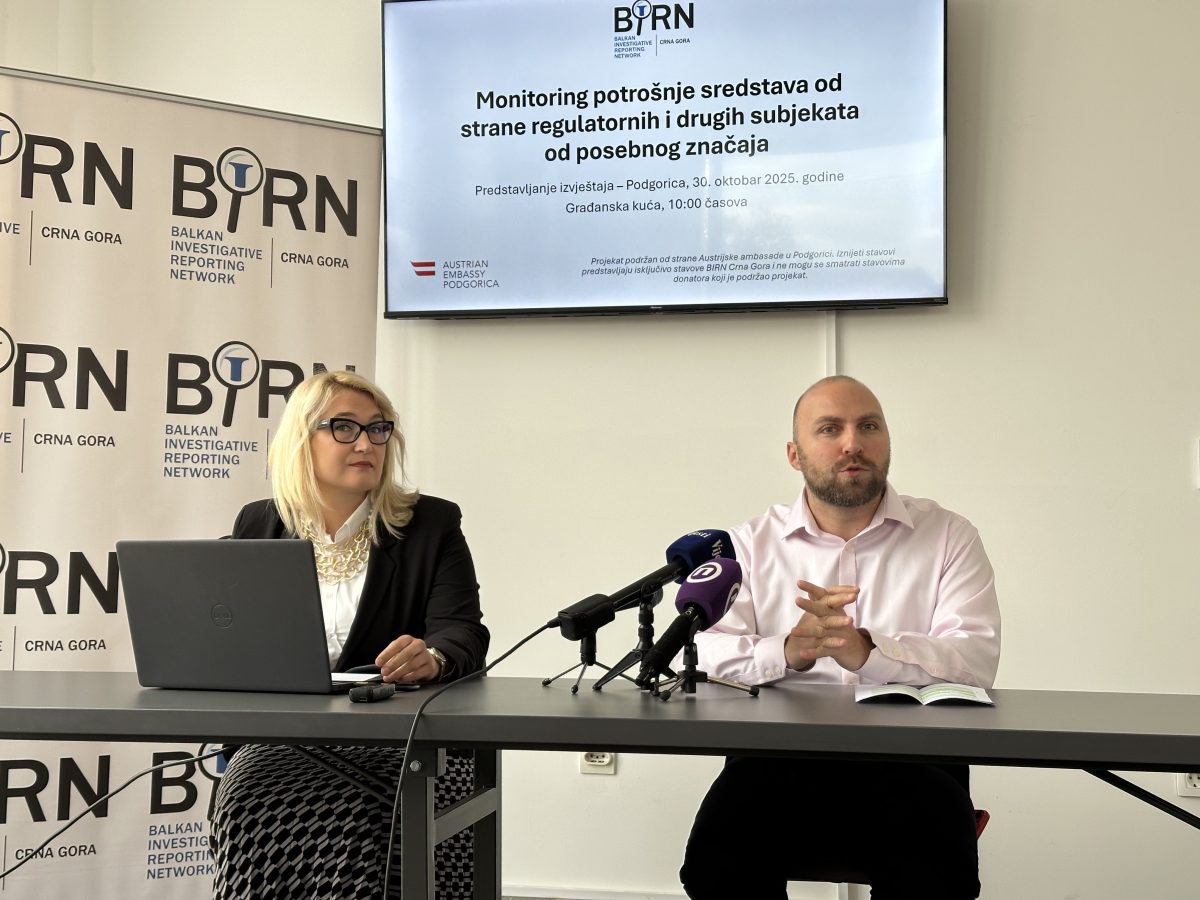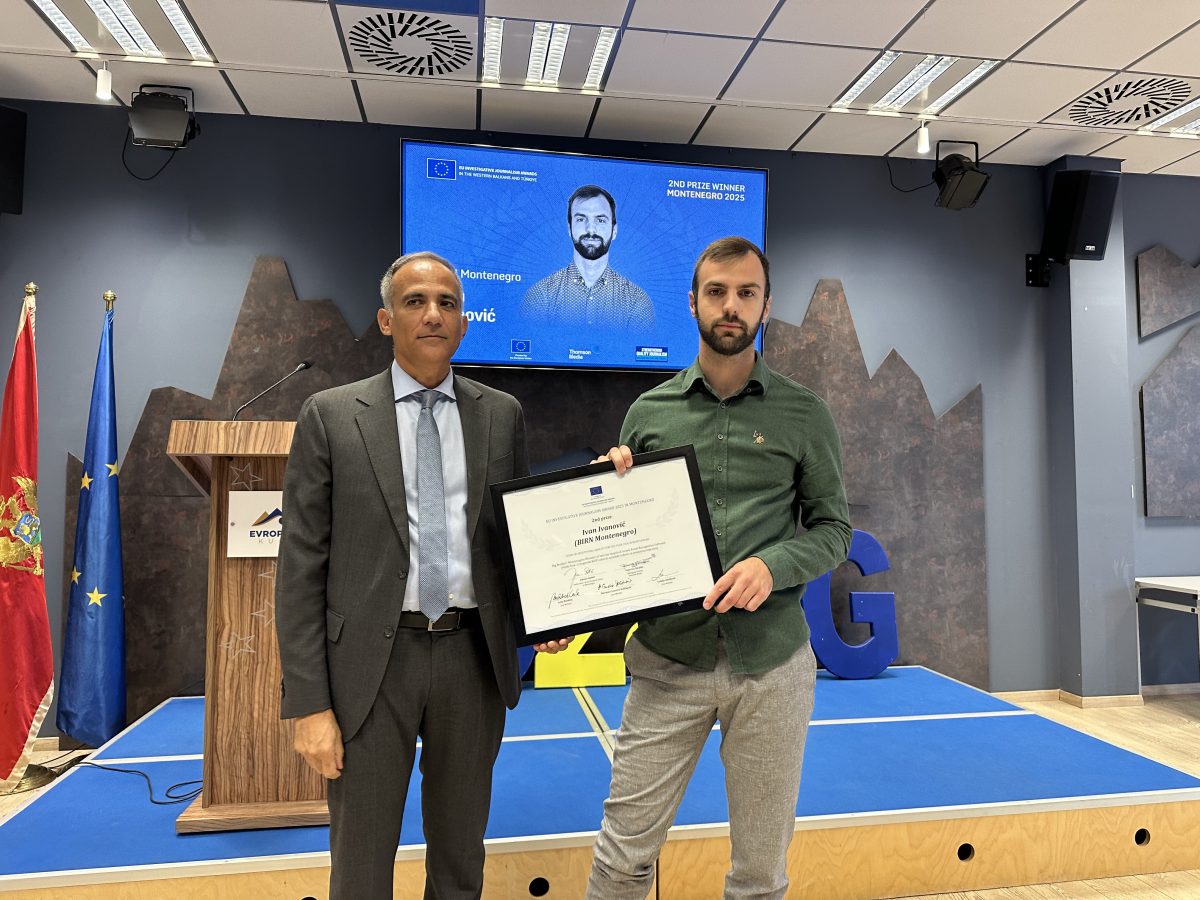On October 30, BIRN Montenegro presented a report on the spending of funds by regulatory and other institutions of special importance, which showed that most of them lack transparency when it comes to the use of public money.
During a four-month monitoring period, BIRN Montenegro tracked the spending of seven regulatory agencies: the Agency for Electronic Communications and Postal Services (EKIP), the Energy and Regulated Utilities Agency (REGAGEN), the Insurance Supervision Agency, the Civil Aviation Agency, the Capital Market Commission, the Institute for Medicines and Medical Devices (CINMED), and the Development Bank of Montenegro (formerly known as the Investment and Development Fund).
BIRN Montenegro’s Executive Director, Vuk Maras, warned that the majority of monitored agencies failed to demonstrate transparency, adding that the report will be presented to the relevant institutions to ensure that those enjoying institutional independence truly operate independently.

“We took part in consultations with the State Audit Institution (SAI), which has been informed about all the findings identified by BIRN during this period. We will also address the government of Montenegro and the relevant line ministry. All the entities and institutions within this chain of control and oversight will be informed about the problems we identified, and we hope they will take all necessary steps to correct these irregularities,” Maras said.
BIRN Montenegro’s Programme Manager, Jelena Mitrovic, pointed that over a six-year period, the agencies generated more than 191,8 million euros in revenues, while spending 73.1 million euros on salaries, allowances, and other personal expenses.
“In the six-year period, just over 542,000 euros was distributed for sponsorships and donations, with the largest share allocated by the Institute for Medicines and Medical Devices, without any available information on the recipients. That institution alone granted more than 438,000 euros last year for housing assistance, which is nearly five times more than in 2023,” Mitrovic said.


















